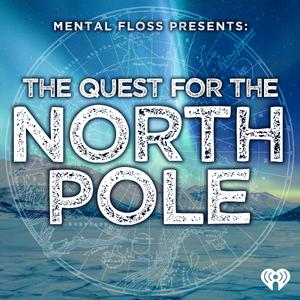
Mental Floss Presents: The Quest for the North Pole
iHeartPodcasts and Mental Floss
Many wanted to claim its discovery—but only one could be the first. In The Quest for the North Pole, a new podcast from Mental Floss and iHeartRadio, we'll dive into the adventure, excitement, and danger surrounding our obsession with the North Pole. In each weekly episode, we'll analyze the motives and celebrate the triumphs of the people who sought the northernmost point on the globe, from the questionable methods of early explorers to a century-old controversy that's yet to be settled. In our story, we'll look at Sir John Franklin's brave but disastrous attempt, Fridtjof Nansen's innovations for polar travel, and Robert E. Peary's expeditions with Matthew Henson—and the way Peary robbed Henson of the credit he deserved.
- 21 minutes 57 secondsBonus Episode 4: Live from Greenland
In the final bonus episode of The Quest for the North Pole, we travel to far northwestern Greenland to see the changing Arctic firsthand. We explore the long history of this area, from its settlement by Indigenous people, to the expeditions of Peary and Rasmussen, to secret military operations during the Cold War. With scientists from the Geological Survey of Denmark and Greenland, we visit a climate-monitoring station atop the Greenland ice sheet, which gathers the data scientists need to model future changes in the Arctic—and the rest of our planet. Along the way, we'll see amazing wildlife, get frostbite, and realize how lucky we are not to be man-hauling thousand-pound sledges across the ice.
Learn more about your ad-choices at https://www.iheartpodcastnetwork.comSee omnystudio.com/listener for privacy information.
12 January 2022, 10:31 pm - 18 minutes 19 secondsBonus Episode 3: Family Reunions
On their many attempts to reach the North Pole, Robert Peary and Matthew Henson spent a lot of time in northwest Greenland. So much time that they, like many explorers before them, formed intimate relationships with Inughuit women. Their sons from those unions, Kali Peary and Anaukaq Henson, grew up in their Arctic communities never knowing their fathers.
But in the 1980s, an ambitious Harvard neuroscientist brought Kali and Anaukaq to the United States to meet their American relatives. It was a joyous, unforgettable experience—but the family reunion also brought up some painful memories and uncomfortable questions.
Learn more about your ad-choices at https://www.iheartpodcastnetwork.comSee omnystudio.com/listener for privacy information.
21 August 2021, 2:34 am - 20 minutes 54 secondsBonus Episode 2: Minik and the Meteorites
Before Robert Peary claimed to have reached the North Pole, he led several expeditions to northern Greenland. But they were more than just scouting trips. He brought back three legendary meteorites from the Arctic, which are still on display in the American Museum of Natural History in New York. Peary also brought people—six Inughuit who had helped him retrieve the meteorites, including a young boy named Minik.
In this special bonus episode of The Quest for the North Pole, host Kat Long speaks with Kenn Harper, author of Minik: The New York Eskimo, about the boy’s experience with the museum, how he came to feel betrayed by those he trusted, and how his fate intertwines with the legacy of Arctic exploration.
Learn more about your ad-choices at https://www.iheartpodcastnetwork.comSee omnystudio.com/listener for privacy information.
30 July 2021, 3:42 pm - 22 minutes 28 secondsBonus Episode: The Arctic’s Biggest Mystery
The demise of the Franklin Expedition remains the most compelling puzzle in Arctic exploration. Sir John Franklin was a veteran of three previous polar voyages, recognized for his bravery and resourcefulness, and admired for his grit. The British Admiralty chose him to lead what it hoped would be its last stab at finding the Northwest Passage. In 1845, two lavishly provisioned ships with 129 crew members entered Lancaster Sound, the pathway toward solving the mystery of the Passage. Then, they seemed to vanish into the Arctic labyrinth.
Not a single person survived.
What catastrophe had befallen Britain’s best-prepared polar expedition? And what tantalizing clues are still being uncovered? That’s what we’ll explore in this special bonus episode of The Quest for the North Pole.
Learn more about your ad-choices at https://www.iheartpodcastnetwork.comSee omnystudio.com/listener for privacy information.
16 July 2021, 9:42 pm - 46 minutes 9 secondsPolar Past, Present, and Future
Global warming is changing the Arctic rapidly. Explorers of the past would barely recognize its green tundra, diminished glaciers, and ice-free seas. We’ll hear from journalists and historians who have followed in the footsteps of the explorers, and discovered their original routes have disappeared. What do these changes mean for the people who live there now, and our relationship to the Arctic today? Are there still places left to explore? How will we confront exploration’s nationalist and racist past and make the future more inclusive? This episode will look at the North Pole’s many legacies.
Learn more about your ad-choices at https://www.iheartpodcastnetwork.comSee omnystudio.com/listener for privacy information.
13 March 2021, 3:15 am - 38 minutes 45 secondsTriumph by Snowmobile
In 1968, decades after Peary’s and Cook’s competing stories emerged, a Minnesota insurance salesman named Ralph Plaisted was sitting in a bar, talking to a friend about snowmobiles. His friend said that if snowmobiles were so great, he should be able to ride one to the North Pole. Plaisted accepted the challenge. Thus began one of the most improbable expeditions, led by one of the unlikeliest adventurers, ever made to the Pole—a journey by Ski-Doo that ended up being the first to indisputably reach 90° North latitude. We’ll look at how Ralph Plaisted did it.
Learn more about your ad-choices at https://www.iheartpodcastnetwork.comSee omnystudio.com/listener for privacy information.
5 March 2021, 10:18 pm - 1 hour 2 minutesA Gold Brick
Robert E. Peary expected glowing accolades and worldwide fame for being first at the North Pole. But a New York physician named Frederick Cook said he had been first. Peary sensed his glory being snatched from his grasp—and mounted a relentless campaign in the press to prove his claim. And Henson? He supported his longtime expedition leader—though Peary didn’t return the favor. He had no more use for his loyal assistant after they returned from the Arctic for the last time. In this episode, we unravel Peary’s and Cook’s controversial claims and recognize Henson as one of history’s most important and innovative polar explorers.
Learn more about your ad-choices at https://www.iheartpodcastnetwork.comSee omnystudio.com/listener for privacy information.
26 February 2021, 7:17 pm - 44 minutes 9 secondsThird Time’s the Charm
Peary and Henson had one more shot at the North Pole in them. With their trusted Inughuit partners in Greenland, they spent months in the Arctic preparing for their dash to the Pole in spring 1909. And after traveling over hundreds of miles of dangerous ice, they believed they had reached their goal: They were the first men to stand at the top of the world. Or were they? Before Peary could claim his laurels, another explorer declared that he had conquered the Pole almost a year before Peary. Henson would help establish Peary’s preeminence. But whom would the world believe?
Learn more about your ad-choices at https://www.iheartpodcastnetwork.comSee omnystudio.com/listener for privacy information.
19 February 2021, 8:37 pm - 58 minutes 6 secondsMeet Peary and Henson
No explorer tried harder or over a longer time to claim the North Pole than Robert Edwin Peary, a tough Mainer who suffered setbacks that would have permanently discouraged others—he even lost most of his toes to frostbite and still wouldn’t give up his dream. But he wouldn’t have been able to do it without Matthew Henson, his African-American right-hand man on seven grueling expeditions. In this episode, we’ll meet Peary and Henson, two adventurers with completely different backgrounds and temperaments who formed one of the most enduring and successful partnerships in the history of exploration. But there were also disappointments, betrayals, and a lot of drama. We’ll tag along as they make their first stabs at the Big Nail—the North Pole itself.
Learn more about your ad-choices at https://www.iheartpodcastnetwork.comSee omnystudio.com/listener for privacy information.
13 February 2021, 12:25 am - 47 minutes 46 secondsInuit and the Explorers
European explorers often thought of the Arctic as an empty wasteland, and the Indigenous people who lived there as childlike. But as one historian put it, “the real children in the Arctic would be the white explorers.” From Martin Frobisher’s expeditions in the 16th century right up until Robert Peary’s time, Inuit people helped explorers in countless ways—from providing food, to teaching valuable skills, to saving their lives. In this episode, we’ll learn how Indigenous people viewed the Europeans and Americans in their lands, why they chose to assist in their expeditions, and how explorers often exploited them in their quests for the North Pole.
Learn more about your ad-choices at https://www.iheartpodcastnetwork.comSee omnystudio.com/listener for privacy information.
5 February 2021, 7:37 pm - 48 minutes 19 secondsThe Turning Point
By the second half of the 19th century, British explorers had competition from Americans and Norwegians in the race to claim the North Pole. Nowhere was the contrast in expedition styles more evident than between British naval officer George Strong Nares and Norwegian adventurer Fridtjof Nansen. While Nares stuck to tradition, Nansen ushered in a new era of polar exploration that favored tested theories over wishful thinking, self-organization over government sponsorship, and minimalism over the idea that bigger was better. The international competition to be the first at the Pole was on.
Learn more about your ad-choices at https://www.iheartpodcastnetwork.comSee omnystudio.com/listener for privacy information.
29 January 2021, 2:00 pm - More Episodes? Get the App
Your feedback is valuable to us. Should you encounter any bugs, glitches, lack of functionality or other problems, please email us on [email protected] or join Moon.FM Telegram Group where you can talk directly to the dev team who are happy to answer any queries.
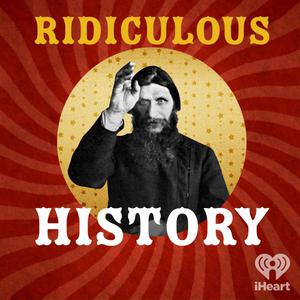 Ridiculous History
Ridiculous History
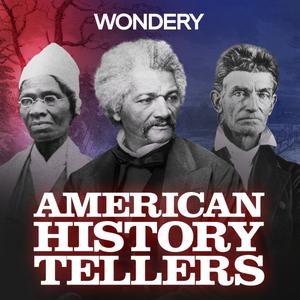 American History Tellers
American History Tellers
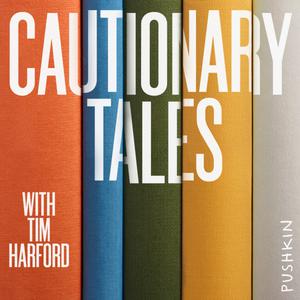 Cautionary Tales with Tim Harford
Cautionary Tales with Tim Harford
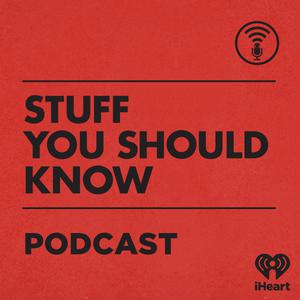 Stuff You Should Know
Stuff You Should Know
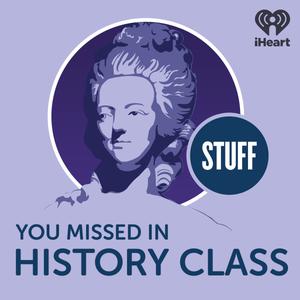 Stuff You Missed in History Class
Stuff You Missed in History Class
 the memory palace
the memory palace